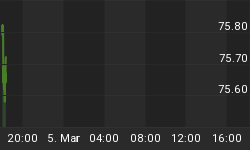The residential real estate sector is in shambles and, some economists say, will not recover until the end of 2010, at the earliest. Now it looks like commercial real estate may be the next block to fall in our "Jenga economy."
On November 19, bonds and stocks backed by commercial real estate loans plummeted on investors' fears the struggling U.S. economy might lead to a wave of defaults.
Big real estate companies suffered big losses: shares of Simon Property Group, the top U.S. mall operator, declined 13%; Boston Properties Inc., owner of skyscrapers and office buildings in key U.S. markets, fell 12.1%.
General Growth Properties Inc., which owns more than 200 mall properties throughout the United States, is teetering on the brink of annihilation. If the flailing company can't come up with the $958 million of its debt that is now due, and the $3.07 billion due next year, it will have to file for bankruptcy protection.
"Ghost malls" may become a common sight around the country, with major mall developers and big-name retail chains like Linens 'n Things and Circuit City going broke and others, such as Starbucks, closing hundreds of stores nationwide. Small businesses are even worse off as shoppers tighten their belts.
A recent Newsweek article quipped that it would "take some kind of sorcery to keep the current mix of store closings, skeletal inventories, hard-to-find sales staff and anxious consumers from turning the yuletide shopping season of 2008 into a seriously cranky Christmas. Even Santas have been getting pink-slipped."
None of what's happening surprises Andy Miller, a consummate real estate entrepreneur and friend of Doug Casey's, who presented his outlook on the commercial real estate market in the September edition of The Casey Report.
Miller on Retail Shopping Centers:
"Retail are the most exposed product type. For example, we have a grocery-anchored shopping center in Phoenix that's about 94% occupied. We've been trying to sell it for the last nine months. We've had it under contract probably four times. Each time, it's fallen through because the buyers were unable to find a lender. The lack of liquidity is particularly acute in the commercial markets.
"Most commercial mortgages that were written over the last 10 years for most product types, except apartments, were done by conduits, and they were done by asset-backed finance securitizations, CDOs, etc. The overwhelming number of those conduits are now either out of the market or shut down. There's going to be a tremendous upheaval in the commercial market relative to the fact that there's almost no conduit money available anymore."
Miller on Office Space:
"The office market, of course, is eroding. While I expect the central business districts around the 20 top cities in the country to probably be relatively stable in terms of office occupancy, I think the suburban markets are going to get creamed."
Miller on Warehouses:
"Warehouses are bad. They're very flat. Users are consolidating; they're not expanding."
Miller on Hotels:
"I'd also be wary of hotels. The hotel business is proliferating right now, in a way that I've never seen. There are so many new hotels being built right now nationally that there's no way, even in good times, that I think they could sustain occupancy. A lot of these hotels now have created new flags and they're putting them in multiple locations in most big cities. So there's been a tremendous proliferation of hotels and, with high air fares and high gas costs, there's no question that that's going to be a bad place to be."
Miller on the Real Estate Bubble:
"There is no historical comparison to the situation today. Not even the Great Depression was like this. I believe we've just lived through the greatest expansion of capital in the history of planet Earth, in the history of mankind.
"And this happened really all over about 12 or 13 years, this gigantic, dynamic expansion of money. There is no precedent for this. One truth about cycles is that the downward part of the cycle is usually quicker and more painful than the upward swing. We didn't get into this thing overnight. It took many years, and we are not going to get out of it overnight. It's going to take many years to unwind."
Waiting for the other shoe to drop is an uncomfortable position to be in. Thankfully, there are a number of lifelines we as investors can grab on to, to avoid getting sucked into the whirlpool of declining asset values and a declining dollar... and we should take every chance we get to use them.
How well you do in the unfolding crisis will depend on how well informed you are. "Making the trend your friend" is now more critical than ever to financially survive the onslaught of tidal waves rocking the U.S. economy. The Casey Report diligently analyzes major economic trends and provides actionable advice on how to profit from the "market riptides" - with the goal of preserving and multiplying your assets while others capsize in the stormy seas. Learn more here.















